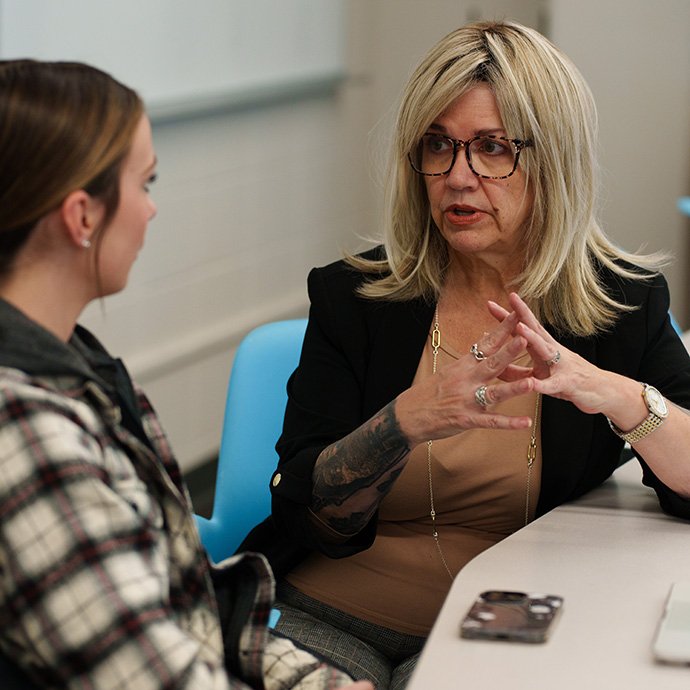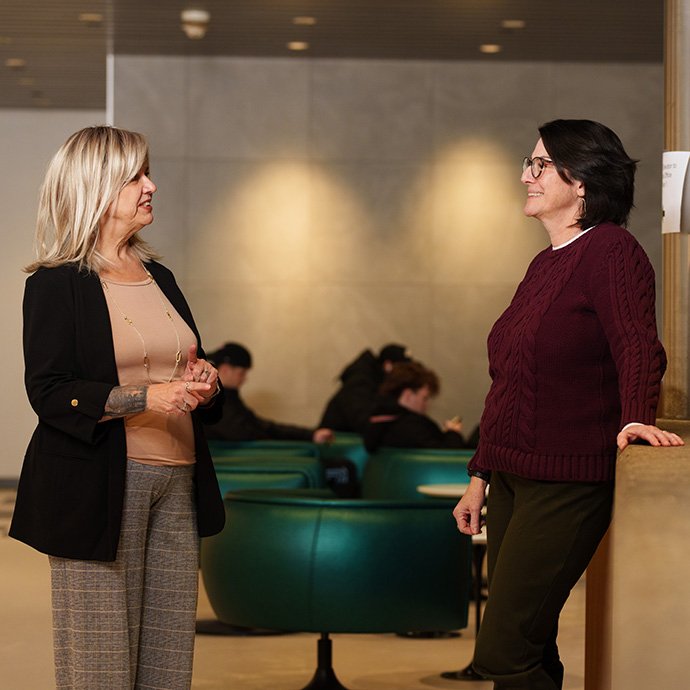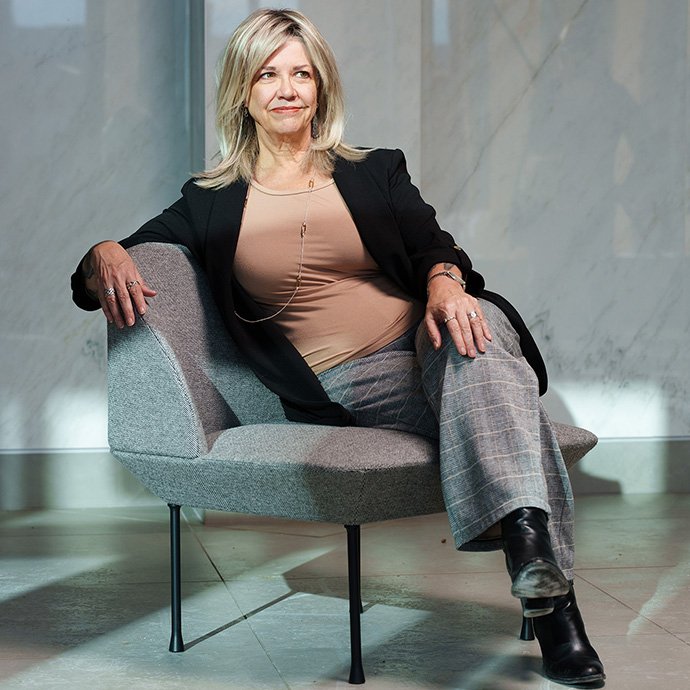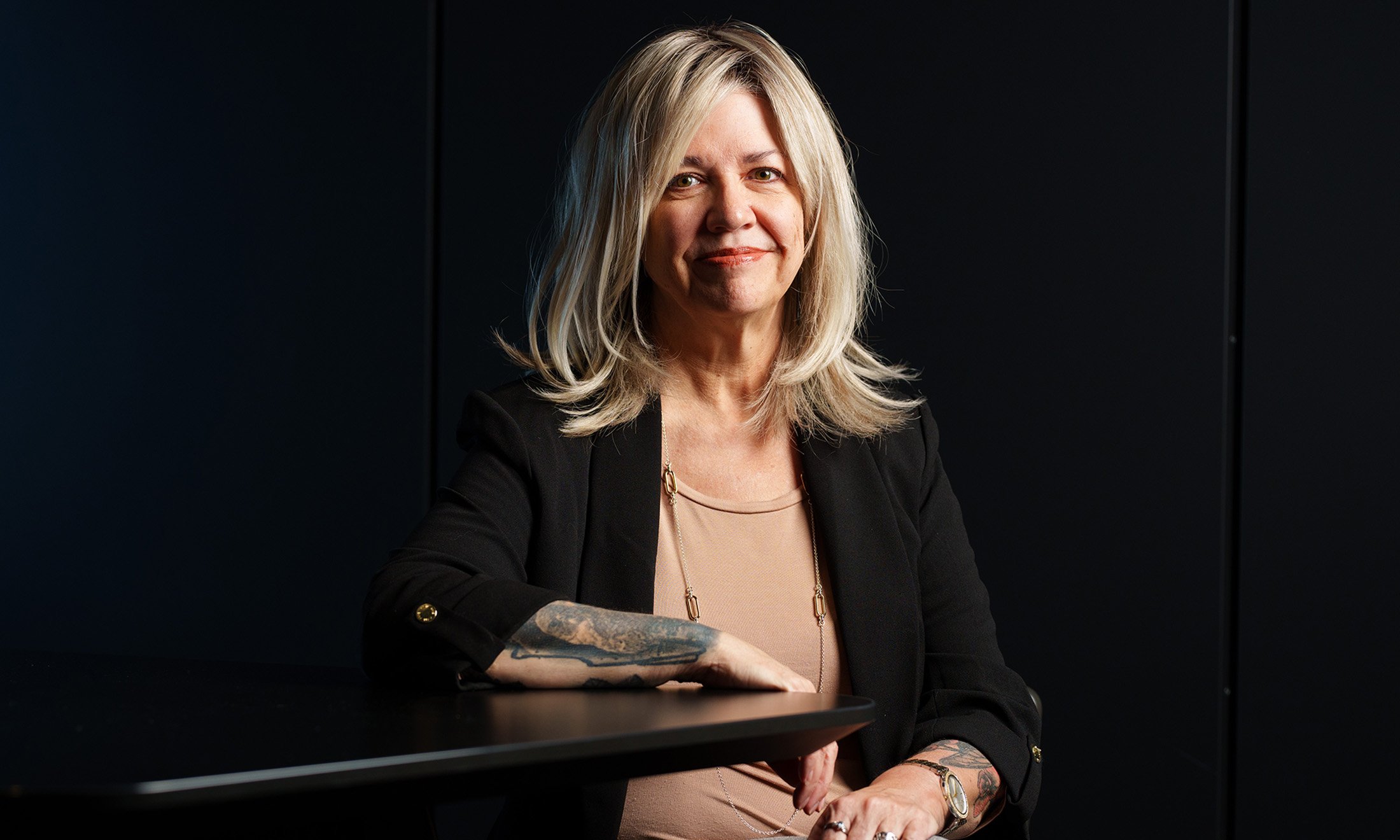Chasing a New Chapter
Nontraditional college journey led associate professor to find her love for criminal justice
 |
A love of lifelong learning and a feeling of “unfinished business” led Associate Professor of Criminal Justice Wendi Johnson, Ph.D., CAS ’06, to finish her degree later in life — and ignited the spark to inspire others through teaching. With the support of mentors, Dr. Johnson first found her footing as a student and later as a faculty member and director of Oakland University’s criminal justice program.
The first in her family to graduate from college, Johnson got her start as an OU theatre arts major right out of high school but had to put her higher education dreams on hold for financial reasons. For two decades, she worked in video production before a nagging feeling to pursue studies pushed Johnson to take night classes in OU’s sociology program. “I always knew I wanted to come back to school and get my degree,” she says. A self-proclaimed true crime junkie and inspired by a biography of trailblazing criminologist Lonnie Athens, Johnson knew her future was in criminal justice.
 |
| Wendi Johnson (left) with mentor Jo Reger (right). |
At OU, Professor of Sociology Jo Reger became a beacon of support to Johnson, inspiring her to double major in sociology and women and gender studies, mentoring her with a capstone project, and helping her search for a graduate school. “Jo Reger was somebody who played a very important role in terms of acting as a mentor for me,” Johnson says.
By pure luck, as Johnson remembers, she landed a position as OU faculty in 2014. A fellow professor of sociology, Heidi Lyons, who had been studying alongside her in graduate school at Bowling Green State University, encouraged her to apply. Johnson went for it, knowing the support she had experienced as a student would translate into her teaching position. “That’s one thing that I really value in my department, which is mentorship,” Johnson says. Besides Reger, who served as her formal mentor, Johnson has also received ample support from others in the department.
 |
“I always tell people I will take as many mentors as I can get. I have been lucky to have that,” Johnson says. “Different people can offer you different advice and help you in different areas, and I consider myself very fortunate and blessed. That’s part of why I accepted the position at OU —it felt like the right fit and that I would be taken care of.”
Teaching and research are symbiotic to Johnson, who says that teaching gives her a deeper understanding of her discipline. In her classroom, Johnson strives to get to know her students and empower nontraditional and first-generation students, often volunteering to teach night classes or offering help with navigating the college experience. “There is a lot on their plate,” she says. “I can understand the challenges that go with that.”
Johnsons says it’s her hope for more students to ask for help or opportunities, such as getting involved in research or getting advice for graduate school. “You can’t be afraid to ask for what you want — that’s a lesson I learned early on,” Johnson says.
In her research with OU Lecturer Aaron Kinzel, Johnson primarily focuses on the reentry to society of formerly incarcerated persons who were imprisoned at an early age and spent several decades in correctional facilities. Their research examines how the former inmates’ sense of identity changes over time and how social factors help alter their social identity.
“[The respondents] talk about the transformative power of education,” Johnson says. “That was really the thing that allowed them to do their time and give meaning and purpose to their lives.”
More Like This: |


 March 05, 2024
March 05, 2024
 By Kristina Lindberg
By Kristina Lindberg
